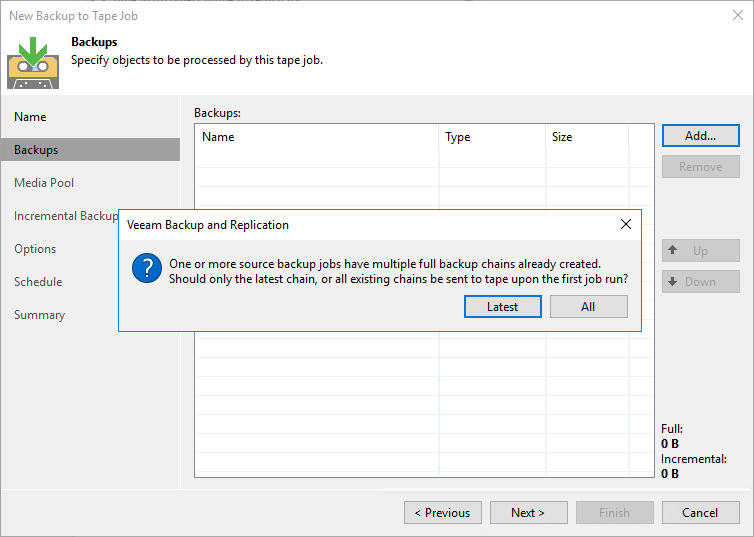If I were to create a new copyjob to replace an old one, and I want it to only move over the very latest restore point and none of the previous restore points that are currently in the repository; can this be accomplished by taking a new active full on the source jobs and then running a sync now on the new copyjob and telling it copy over the latest? If not, can this only be accomplished by wiping out all current local and cloud and starting from scratch?
Solved
Backup logic/functionality question
Best answer by Michael Melter
Regarding the original question
https://helpcenter.veeam.com/docs/backup/vsphere/backup_copying_process.html?ver=110
From my knowledge it’s the other way around: it’s not easy to have it copy the full chain with all the history… Here we would need some folder operations...
Comment
Enter your E-mail address. We'll send you an e-mail with instructions to reset your password.




